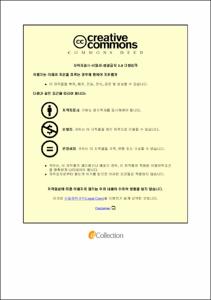생애주기를 고려한 선박 연료유의 온실가스 배출량 평가에 관한 연구
- Abstract
- Strong policies are being announced to reduce greenhouse gases in the international community. The International Maritime Organization is promoting the reduction of greenhouse gas and policy establishment of ships sailing internationally. The initial strategy for greenhouse gas reduction announced in 2018 aims to reduce greenhouse gas by 50% by 2050 compared to 2008. In order to achieve the greenhouse gas reduction goal, it was decided to introduce regulations on operating ships such as EEXI and CII. In addition, safety standards and evaluation standards are being developed for the introduction of low-carbon and zero carbon fuels.
LNG, LPG, and biofuels are evaluated as low-carbon fuels, while hydrogen and ammonia are evaluated as non-carbon fuels. However, in the case of hydrogen and ammonia, there is a possibility that a large amount of greenhouse gas will be emitted depending on the production process. In this case, when the fuel's Life Cycle Assession is performed, more greenhouse gas is emitted than the existing fuel. In order to reduce greenhouse gas generated by ships, greenhouse gas emissions from other industries are increased, resulting in a problem of ultimately increasing greenhouse gas emissions. As a way to solve this problem, we intend to introduce LCA of fuel, and we are developing standards for performing LCA.
In Korea, a method of reforming and producing hydrogen and ammonia is used, and LNG fuel must be imported from abroad to modify. For imports, it is necessary to consider greenhouse gases generated in the process of domestic transportation and vaporization, and in this case, the greenhouse gas emission coefficients of Korea and LNG producers differ.
Therefore, it is expected that each country will have a greenhouse gas emission coefficient, and in the case of Korea, the emission coefficient of alternative fuels used in Korea is to be developed in this study through life cycle evaluation of alternative fuels.
- Issued Date
- 2022
- Awarded Date
- 2022. 2
- Type
- Dissertation
- Publisher
- 부경대학교
- Affiliation
- 부경대학교 대학원
- Department
- 대학원 기계시스템공학과
- Advisor
- 정석호
- Table Of Contents
- 제 1 장 서 론 1
1.1 연구배경 1
제 2 장 선박 온실가스 규제 7
2.1 선박 온실가스의 규제 7
2.1.1 선박 연료유의 탄소배출 계수 10
2.1.2 선박 에너지 효율관리계획서(SEEMP) 12
2.1.3 신조선 에너지 효율 설계지수(EEDI) 14
2.1.4 운항선 효율지수(EEXI) 및 탄소집약도지수(CII) 18
2.2 IMO 온실가스 감축 초기 전략 26
제 3 장 선박 연료유 온실가스 생애주기 평가 31
3.1 생애주기온실가스 평가의 개요 31
3.2 선박 연료유 생애주기 평가 36
3.2.1 평가 대상 대체연료의 선정 36
3.2.2 선박 연료유 온실가스 생애주기 평가의 목적 및 범위 46
제 4 장 선박 대체연료의 생애주기 평가 52
4.1 선박 대체 연료의 범위 52
4.2 수소 연료의 생애주기(WtT) 온실가스 평가 54
4.2.1 수소 연료의 특성 54
4.2.2 수소 연료 선박의 구성 55
4.2.3 수소 연료의 국내 생산과정에서 발생되는 온실가스 평가 59
4.3 암모니아 연료의 생애주기(WtT) 온실가스 평가 73
4.3.1 암모니아 연료의 특성 73
4.3.2 암모니아 연료 선박의 구성 75
4.3.3 암모니아 연료의 국내 생산과정에서 발생되는 온실가스 평가 80
4.4 LNG 연료의 생애주기(WtT) 온실가스 평가 87
4.4.1 LNG 연료의 특성 87
4.4.2 LNG 연료 선박의 구성 93
4.4.3 LNG 연료의 국내 생산과정에서 발생되는 온실가스 평가 101
4.5 대체연료의 Tank to Propeller 온실가스 평가 103
4.6 대체연료의 생애주기 온실가스 평가 결과 107
제 5 장 선박 적용을 통한 생애주기 온실가스 평가 111
5.1 대상선박의 선정 111
5.2 생애주기 온실가스 평가 기반 탄소배출계수 적용에 따른 변화 113
5.3 대체연료 전환에 따른 온실가스 배출량 변화 117
제 6 장 결 론 124
참고문헌 126
- Degree
- Doctor
- Files in This Item:
-
-
Download
 생애주기를 고려한 선박 연료유의 온실가스 배출량 평가에 관한 연구.pdf
기타 데이터 / 1.83 MB / Adobe PDF
생애주기를 고려한 선박 연료유의 온실가스 배출량 평가에 관한 연구.pdf
기타 데이터 / 1.83 MB / Adobe PDF
-
Items in Repository are protected by copyright, with all rights reserved, unless otherwise indicated.